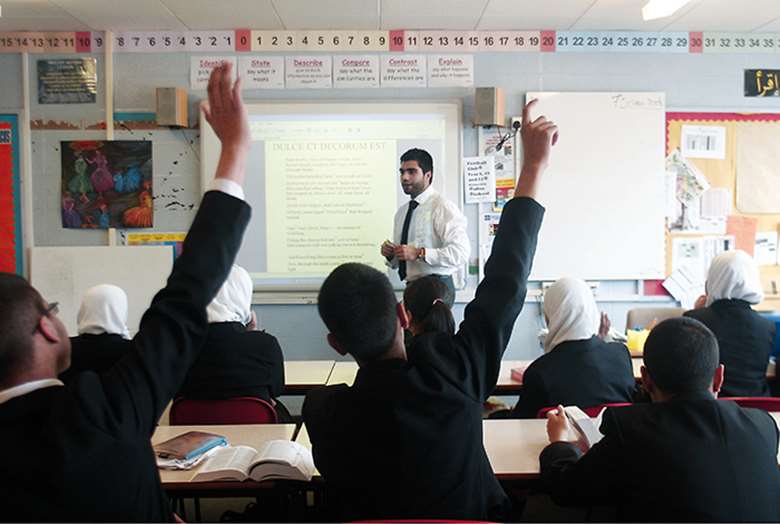Legal Update: Expanding the school census
Anita Hurrell
Tuesday, September 27, 2016
New guidance on the collection of school census data should not affect any child's right to access compulsory education, writes Anita Hurrell, legal and policy officer at Coram Children's Legal Centre.

On 4 May 2016, after a delay, the Department for Education released new national guidance on the school census. From autumn 2016 the census is to include collection of new pupil data alongside that already collected and put into the National Pupil Database, which now holds the data of 20 million children and young people.
Some of the expansion does not appear particularly drastic: ethnicity and language data is now to be collected for all pupils rather than only those aged five and over; a unique property reference number (an identifier for every address) will now supplement the pupil's full address. In other areas more detail is requested: as well as language, returns must now include proficiency in English according to a five-tier scale. But, as well as general and long-standing questions about the use and sharing of children's data, it is the expansion of data collection to include country of birth and nationality that has caused most concern.
Under section 537A of the Education Act 1996, there is a statutory requirement on schools to submit school census returns. Having a statutory basis for the school census is designed to ensure that schools will complete returns and means that pupil and parental consent are not necessary for the provision of information and that schools are protected from legal challenge relating to breaching confidentiality.
Confidentiality and privacy
On the other hand, the way information can be shared is governed by strict rules and legislation designed to protect confidentiality and privacy, including a common law duty of confidentiality, the Human Rights Act 1998 and the Data Protection Act 1998. The Department for Education recommends that schools and local authorities deal with their data protection duties by issuing privacy notices to explain to pupils how their data is being used in the census, and it provides templates.
Country of birth and nationality data are to be collected for all children from this autumn, with the country and nationality recorded as stated by the parent or guardian and/or child (in the case of a child without a parent or guardian). The guidance states that the information "would be expected to appear on - or be derived from" the child's birth certificate, or passport or European Economic Area identity card. But, importantly, the guidance also states that "there is no requirement for the school to request, or see, a copy" of such a document. Schools may also use codes to indicate refusal to provide the information or that it has not yet been obtained or is not known.
The justification given for the inclusion of country of birth and nationality data is that "there is currently a dearth of information held to understand how effective the education sector is for foreign nationals and to effectively measure the impact of foreign nationals on the education sector". The collection of new data will, according to the guidance, allow the DfE to "measure whether the individual pupils, or the schools they attend, face additional educational challenges".
Discrimination concerns
However, there are concerns about schools wrongly asking to see identity documents, about whether questioning may deter families affected by the immigration system from accessing their children's fundamental right to education, and about the potential for data to be used for immigration enforcement. These concerns are intensified by previous press reports from March 2013 regarding a supposed "crackdown" - hastily denied - on so-called "education tourists", and from August 2015 regarding a reported DfE review into whether state schools act as a pull factor for immigration.
In response to these concerns, the Against Borders for Children campaign is calling for teachers and parents to boycott the new questions. As the campaign emphasises, it is important for pupils and parents to understand that they can lawfully refuse to provide the information if they wish. But the most important message for all pupils, families and schools is that compulsory education is a child's right irrespective of what country they come from. As DfE guidance clearly states, apart from short-term tourists from outside the European Economic Area and non-EEA children here on visas to attend private schools, children are entitled to attend school and schools "must not refuse a school place simply because of doubts about a child's immigration status". Nothing in the new school census changes this.
Download this Legal Update as a PDF
Legal Update is produced in association with experts at Coram Children's Legal Centre www.childrenslegalcentre.com
Sign up to the monthly childRIGHT bulletin from CYP Now and Coram Children's Legal Centre, for the latest news and information about children, young people and the law: www.cypnow.co.uk/email-bulletins




